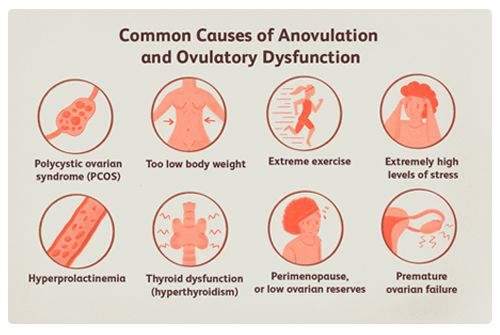
FEATURESIf there’s an infertility topic you want to learn more about or a concern you want to research, chances are one of our experts has written an article or two about it or has spoken about it in an interview.
We’re in This Together - Fertility Together
Interested in starting your own entrepreneurial journey but unsure what to expect? Then read up on our interview with Leyla Bilali, Founder of Fertility Together, located in Hoboken, NJ, USA.
Embrace Her Legacy Podcast
CEO and Founder, Maria I. Melendez - @iammariamelendez is breaking down ALL of the various challenges with infertility that both women AND men face. Tune into this podcast to hear the truth about infertility that we don't always hear or talk about with our special guest Leyla Bilali (@fertilitytogether) - a Registered Nurse and Fertility Specialist!
Can BPA Harm Your Fertility?
Medically reviewed by Leyla Bilali, RN
BPA, or bisphenol-A, is a chemical found in some plastics and epoxy resins. If you look for the recycle number 7, you'll know that the plastic you're using contains BPA. BPA can also be found in some dental sealants, canned food linings, pre-2012 baby bottles, and medical devices.
The media frequently reports on concerns over BPA, and you can find BPA-free water bottles for sale in most sporting goods stores. Are these BPA-free products worth it? Is BPA dangerous for your health?
Treatment for Pelvic Inflammatory Disease
Medically reviewed by Leyla Bilali
The first priority when it comes to the treatment of pelvic inflammatory disease (PID) is to deal with the underlying infection, even if you don't have any symptoms besides infertility when you're first diagnosed. PID can worsen over time. The sooner it's treated, the less damage you'll sustain to your reproductive organs.
PID can also lead to serious pregnancy complications, which is just one of the many reasons why PID must be treated before you get pregnant. Only after the infection is resolved should treatment of the resulting infertility be addressed.
Understanding the Diagnosis of Unexplained Infertility
Medically reviewed by Leyla Bilali, RN
Unexplained infertility is a frustrating diagnosis to receive. It is also a common one. Approximately one in four fertility challenged couples will be told there is no explanation for why they can’t conceive.1 Unexplained infertility does not, however, mean that you have no options. There is a reason for hope.
Endometrium Conditions and Diseases
Medically reviewed by Leyla Bilali, RN
The endometrium is the inner lining of the uterus. Each month, the endometrium thickens and renews itself, preparing for pregnancy. If pregnancy doesn’t occur, the endometrium sheds in a process known as menstruation.
If conception takes place, the embryo implants into the endometrium. Conditions that involve the endometrium and may impact fertility include: Adenomyosis, Asherman’s syndrome (uterine adhesions), Endometrial cancer, Endometrial polyps, Endometriosis, Luteal Phase Defect, Too thin or too thick endometrium and Viral infection.
Overview of Pelvic Inflammatory Disease (PID)
Medically reviewed by Leyla Bilali, RN
Pelvic inflammatory disease (PID) is an infection of the reproductive organs, occurring when bacteria travels through cervix to the uterus and fallopian tubes. PID can cause infertility, ectopic pregnancy, chronic pelvic pain, tubal or ovarian abscesses, adhesions, peritonitis (infection of a silk-like lining that covers the abdominal organs) and perihepatitis (inflammation of the coating of the liver). In rare, severe cases, untreated PID can lead to death.
Causes of Low Sperm Count and Motility
Medically reviewed by Leyla Bilali, RN
One of the primary causes of infertility is low sperm count and motility. These issues, coupled with poor sperm quality, represent 90% of all cases of infertility in men and anywhere from 20% to 40% in couples. Nearly one in six men are affected by infertility related to problems with their sperm. The causes can range from hereditary factors and lifestyle choices to past infections and a person's age.
Increase Your Fertility by Breaking These 8 Bad Habits
Medically reviewed by Leyla Bilali, RN
Breaking down why these 8 habits are bad for your fertility health and what you can do to change them.
Stop Staying Up Late and Start Prioritizing Sleep
Cut Back on Excessive Caffeine
Exercise But Don't Over (or Under) Do It
Anovulation and Ovulatory Dysfunction
Medically reviewed by Leyla Bilali, RN
Ovulation is the release of an egg from the ovary. It must occur for pregnancy to be achieved naturally. Anovulation means a lack of ovulation or absent ovulation. When ovulation is irregular—but not completely absent—it is called oligo-ovulation. Both anovulation and oligo-ovulation are types of ovulatory dysfunction. Ovulatory dysfunction is a common cause of female infertility. Up to 40% of infertile people with ovaries experience dysfunctional ovulation.
What to Do When You Can't Get Pregnant
9 Steps Every Couple Should Take
Medically reviewed by Leyla Bilali, RN
The inability to get pregnant if you've been trying for some time can be heartbreaking. But there are steps you can, and should, take. Sometimes the cause of infertility is easy to diagnose and can be treated.
Why Am I Not Getting Pregnant?
Medically reviewed by Leyla Bilali, RN
So, you've been trying to get pregnant for awhile, but nothing is happening. Why are you not getting pregnant? There are many possible reasons, including ovulation irregularities, structural problems in the reproductive system, low sperm count, or an underlying medical problem.
While infertility can have symptoms like irregular periods or severe menstrual cramps, the truth is that most causes of infertility are silent. Male infertility rarely has symptoms. Here are eight possible reasons you haven't conceived yet.
Hydrosalpinx: Treatment, Diagnosis, and Causes
Medically reviewed by Leyla Bilali, RN
A hydrosalpinx is a specific type of fallopian tube blockage. The fallopian tubes extend from the uterus, one on the right and one on the left. If they become blocked or infected, infertility may result. Studies have found that hydrosalpinx blockages are present in 10% to 30% of tubal infertility cases.
7 Ways Stress Can Make It Harder to Get Pregnant
Medically reviewed by Leyla Bilali, RN
Whether stress itself can make getting pregnant difficult is a matter of debate. The current thinking is that stress alone does not cause infertility. The American Society for Reproductive Medicine states in their stress and infertility pamphlet, "Even though infertility is very stressful, there isn't any proof that stress causes infertility."
12 Potential Signs You May Have a Fertility Problem
Medically reviewed by Leyla Bilali, RN
Infertility refers to how long you have been trying to conceive unsuccessfully. While there are possible early warning signs of infertility as well as risk factors (things that make it more likely you'll have difficulty getting pregnant), some couples don't have any signs or symptoms of infertility. If you do, it's important to talk to your doctor. Because of this rule of thumb, many couples wonder if they have to try to get pregnant for a whole year before they would be able to tell if there is a problem. Here are some questions you and your partner can consider if you think you might be dealing with infertility. If you answer yes to any of these questions, talk to your doctor.
What Impact Does Male Smoking Have on Sperm and Fertility?
Medically reviewed by Leyla Bilali, RN
Can smoking hurt your sperm? Yes. It can also negatively affect your fertility. You already know that smoking is bad for your health, and you have likely guessed that smoking is bad for female fertility. In both men and women, smoking has been linked to an increased risk for many cancers, heart disease, emphysema, and a number of other health problems.
















